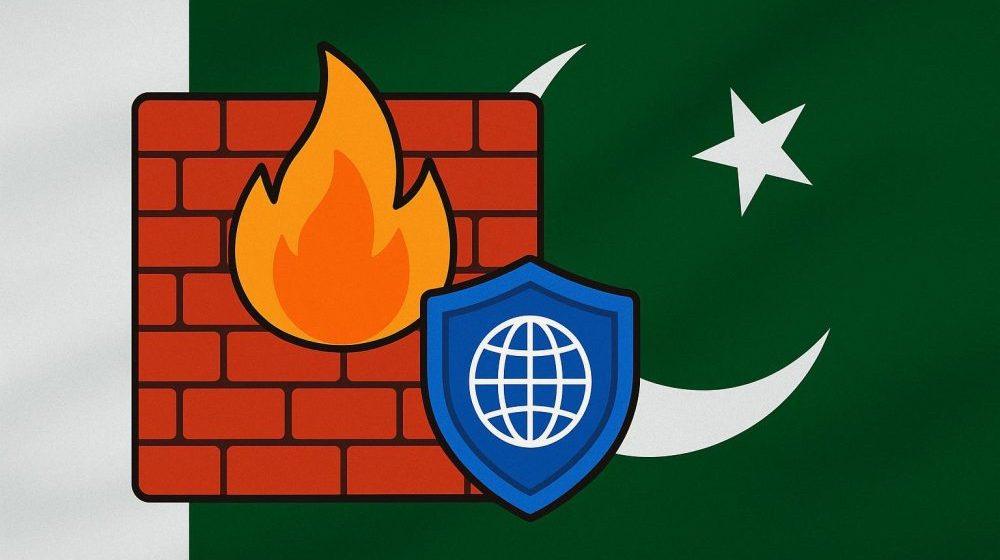Now Reading: Pakistan’s Internet Firewall Upgrade: PTA Takes Major Step to Strengthen Cybersecurity
-
01
Pakistan’s Internet Firewall Upgrade: PTA Takes Major Step to Strengthen Cybersecurity
Pakistan’s Internet Firewall Upgrade: PTA Takes Major Step to Strengthen Cybersecurity

The Pakistan Telecommunication Authority (PTA) has officially launched a large-scale project aimed at upgrading Pakistan’s Internet Firewall to reinforce the country’s cybersecurity framework. This move comes at a crucial time when digital threats are growing more advanced and widespread across the globe.
According to official details, the Pakistan’s Internet Firewall Upgrade project is designed to enhance the protection of national telecom infrastructure and ensure safer online communication. The estimated budget for this initiative ranges from Rs. 40 million to Rs. 120 million, depending on the chosen firewall models, license durations, and deployment scale.
Why Pakistan Needs a Firewall Upgrade
In today’s digital world, cyber threats are evolving faster than ever. Pakistan’s telecom sector, which connects millions of users daily, is a frequent target for hackers and cybercriminals. These attacks can compromise sensitive government data, disrupt essential services, and cause major financial losses.
By upgrading to next-generation firewalls (NGFWs), the PTA aims to create stronger barriers against cyber intrusions and unauthorized access. The Pakistan’s Internet Firewall Upgrade is therefore a strategic investment in the nation’s digital defense system, ensuring greater safety for both government institutions and citizens.

Key Features of the New Firewall System
The upgraded firewall system will include several advanced cybersecurity features to enhance detection, prevention, and response to online threats. These include:
1. Intrusion Prevention System (IPS)
The new system will identify and block suspicious network activity, preventing attackers from exploiting system vulnerabilities.
2. Malware and Virus Protection
Built-in malware protection will help detect and remove harmful files before they can spread across PTA’s network.
3. VPN and SSL Security
Secure communication channels will be established through Virtual Private Networks (VPNs) and SSL inspection, protecting confidential data transmission.
4. Web Filtering
The firewall will monitor and filter web traffic to prevent access to malicious websites or harmful online content.
5. Real-Time Network Monitoring
The system will enable 24/7 network surveillance, providing instant alerts in case of unusual or unauthorized activity.
Centralized Control and Failover Configuration
To ensure uninterrupted service, the Pakistan’s Internet Firewall Upgrade includes centralized management consoles for network administrators. This allows PTA to monitor all regional offices and data centers from one secure platform. The system will also include active-passive failover configurations, which automatically switch to backup systems in case of hardware failure ensuring that Pakistan’s internet infrastructure remains operational at all times.
Integration with National CERT
A key aspect of the upgrade is its planned integration with the National Computer Emergency Response Team (National CERT). This collaboration will enable real-time sharing of threat intelligence, helping identify and respond to cyber incidents faster and more effectively. It marks a significant step toward building a unified national cybersecurity ecosystem.
Project Implementation Phases
The implementation of Pakistan’s Internet Firewall Upgrade will be carried out in multiple phases:
- Assessment Phase: Evaluation of existing systems and identification of weak points in PTA’s current security network.
- Procurement and Installation: Purchase and deployment of new firewall hardware and software licenses.
- Configuration and Testing: Setting up and testing the firewalls to ensure optimal performance.
- Training and Capacity Building: Strengthening the skills of PTA’s IT teams to manage and maintain the new system effectively.
- Maintenance and Support: Continuous post-deployment maintenance and updates with 24/7 vendor assistance for up to five years.
The Impact on Pakistan’s Digital Future
The Pakistan’s Internet Firewall Upgrade is not just a technical enhancement it represents a milestone in the country’s digital transformation. A secure and resilient internet infrastructure will encourage more businesses to go digital, promote e-governance, and boost public trust in online systems.
This project demonstrates PTA’s commitment to making Pakistan’s cyberspace safer for all users from government institutions and private organizations to everyday internet users. By investing in advanced cybersecurity solutions, Pakistan is moving toward a more secure, connected, and digitally independent future.
Conclusion
The Pakistan’s Internet Firewall Upgrade by the PTA is a timely and strategic move to protect national data, enhance digital resilience, and defend against sophisticated cyber threats. With cutting-edge technology, expert implementation, and strong collaboration with National CERT, this project sets a new benchmark for cybersecurity in Pakistan.
As digital dependency increases, such initiatives ensure that Pakistan’s internet remains secure, reliable, and future-ready.










